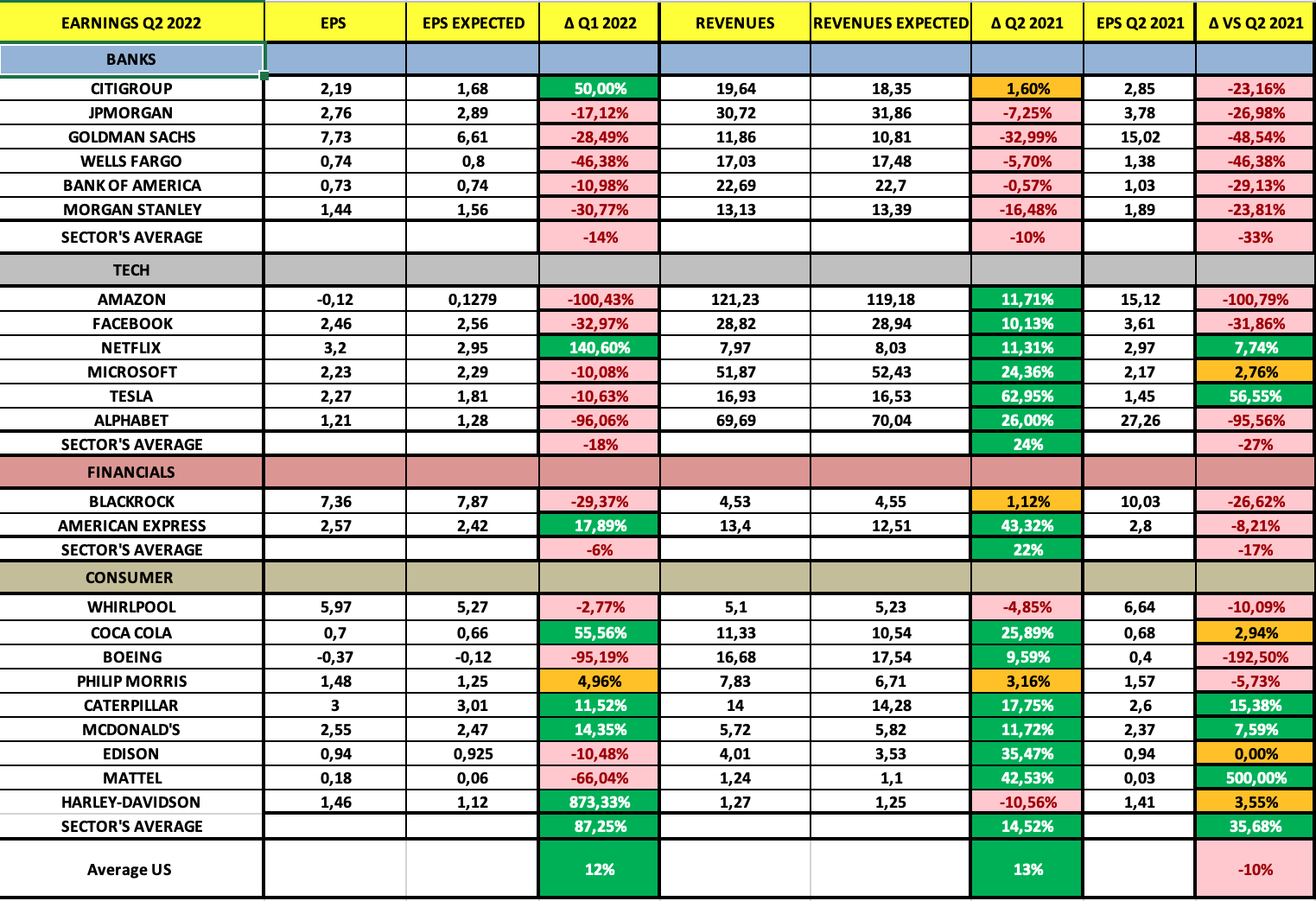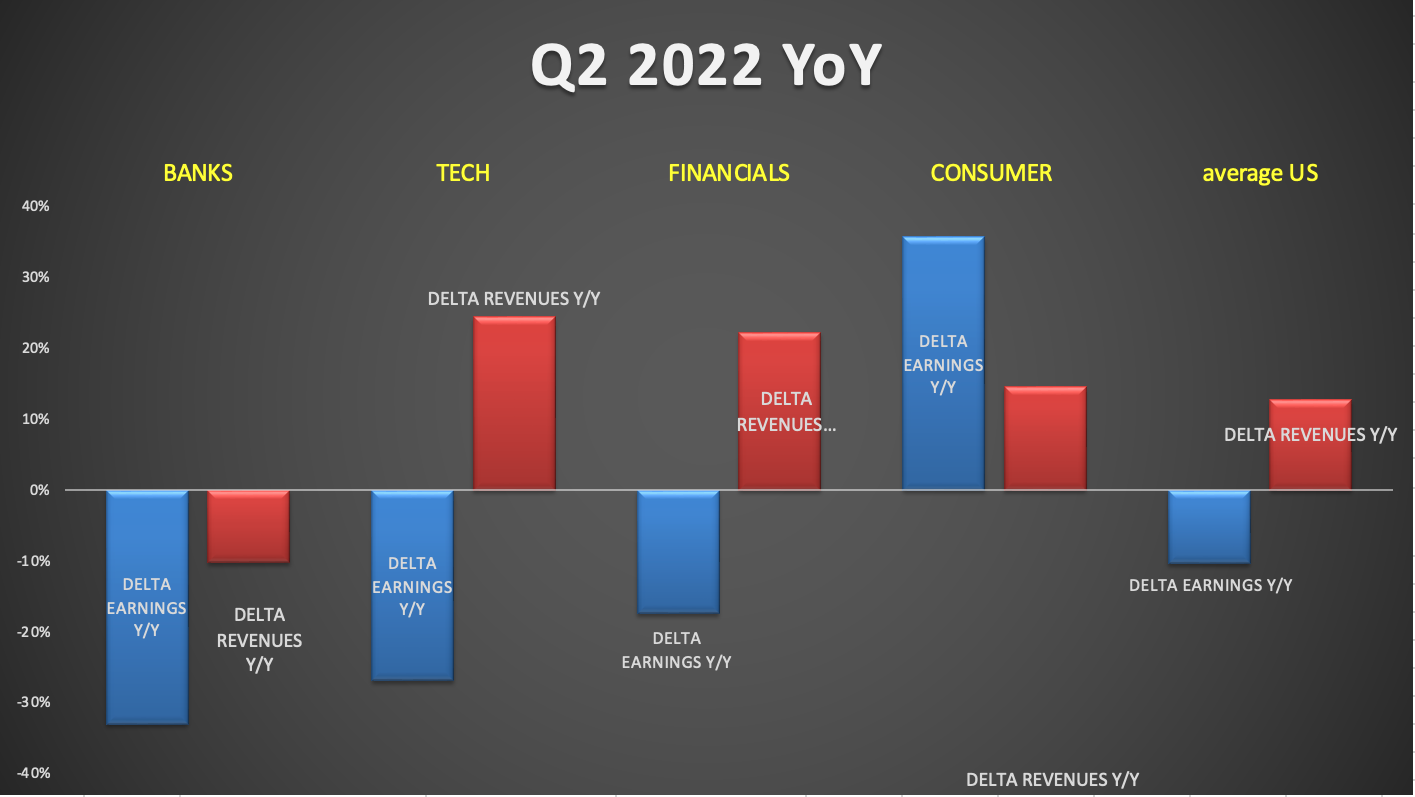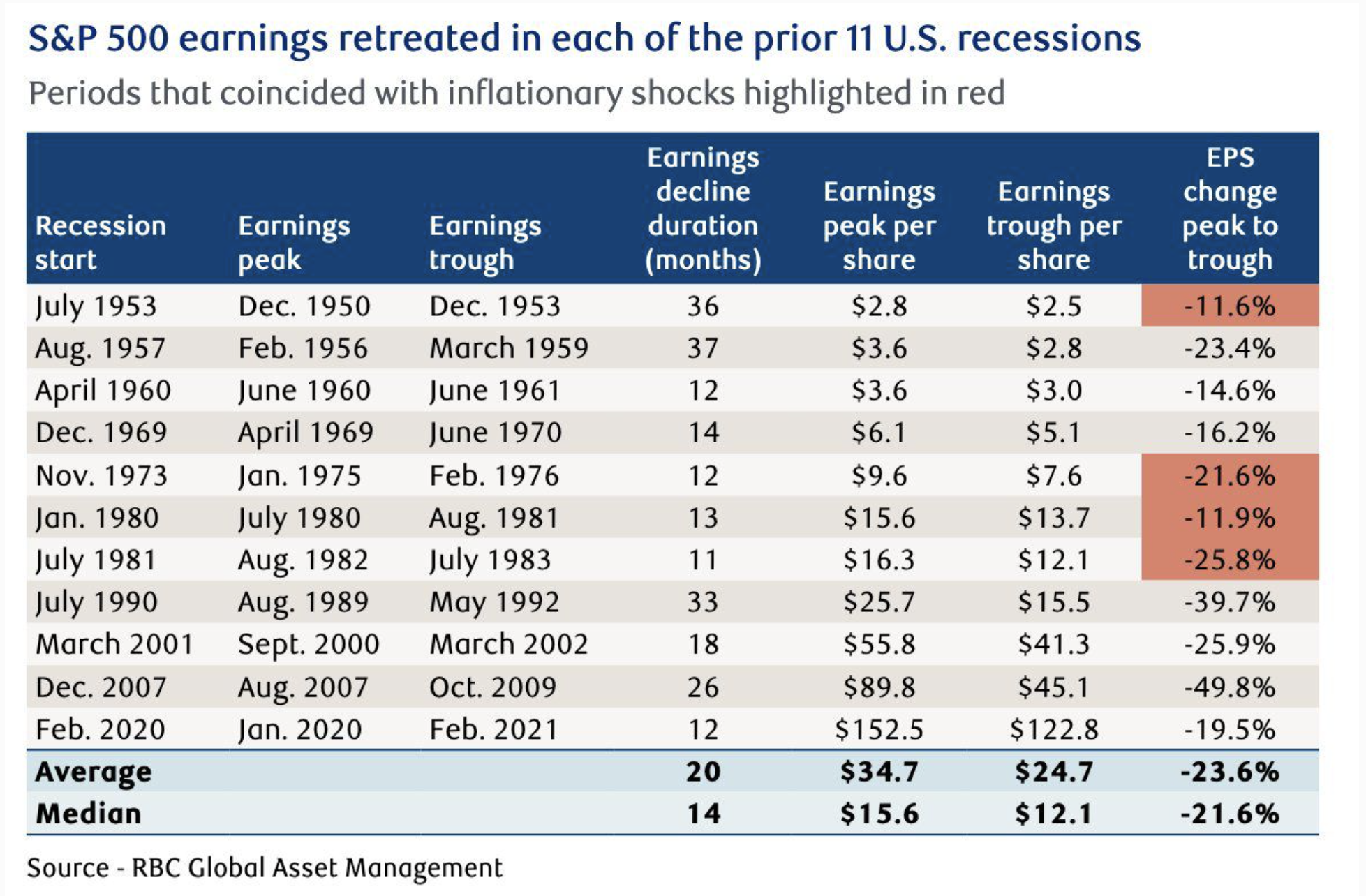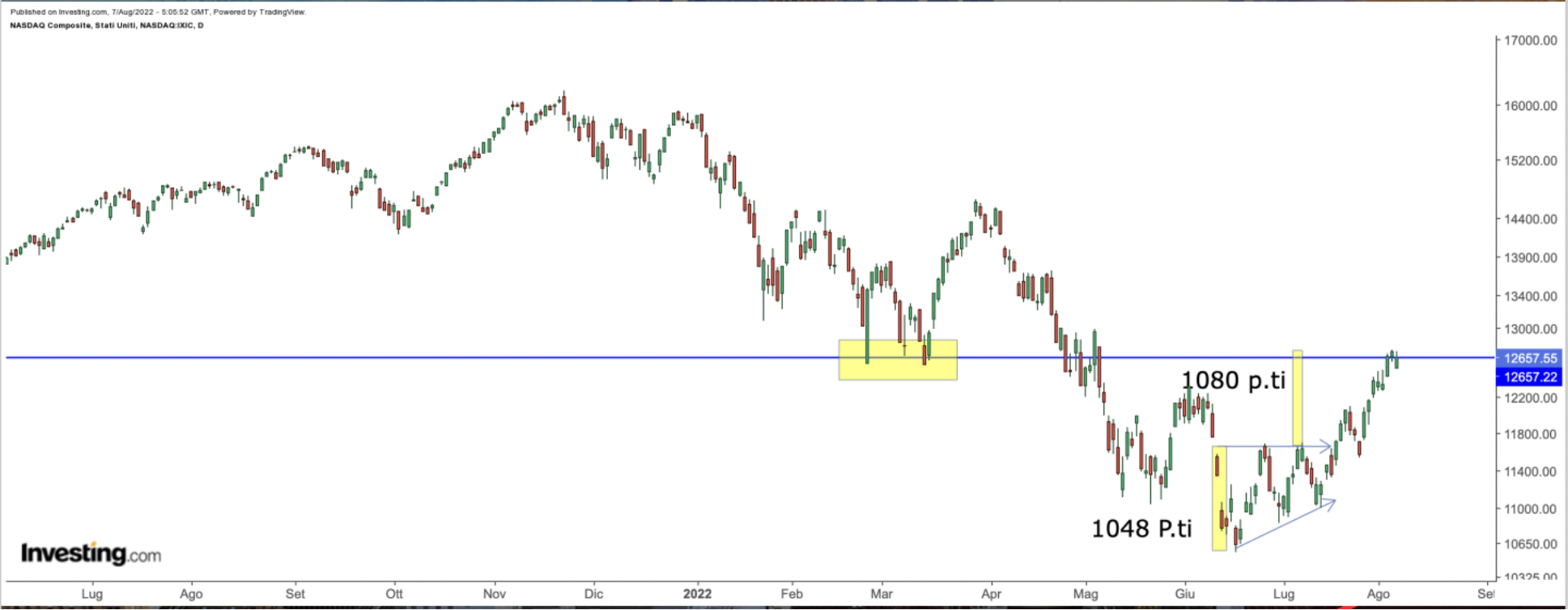- Earnings show that companies (except for the banking sector) managed to pass on inflation almost entirely to the final customer
- Costs have increased considerably, pressuring margins—especially for technology stocks
- Historically, the drop in S&P 500 earnings during recessionary periods is 23.6% on average
After quite some time, I was able to take two weeks off. However, I could not help but continue following the markets—and what an exciting time it was.
To better understand where we stand now (and where we might be heading), let's start today's analysis with quarterly earnings. Below, you see the performance of the major US companies divided by sectors:


- Banking Sector: Profits YoY -33%, revenues YoY -10%.
- Technology: Profits YoY -27, revenues YoY +24%
- Financials: Profits YoY -17%, sales YoY +22%
- Consumer goods: Profits YoY +35.68%, sales YoY +14.52%
- Average U.S. companies: Profits YoY -10%, turnover YoY +13%
From the numbers, we can see that companies (except for the banking sector) managed to pass on inflation almost entirely to the final customer, thus partly explaining the increase in positive turnover for all major sectors (especially consumer goods).
However, looking at the earnings trend, we see how costs have also increased considerably, pressuring margins, especially for technology stocks.
Now, let's have a look at historical earnings performance in recessionary periods—since it seems that after wars, inflation, and pandemics, a recession could be our next bogeyman.

Source: Callum Thomas
Here we have that, on average, the drop in S&P 500 earnings in recessionary periods is 23.6%. So if we read it that way, it would seem that we still have some way to go (decline-wise) on corporate balance sheets. This is also in the face of other risks (see US-China tensions over Taiwan).
In any case, this should never lead us away from our strategies as long-term investors. As I often repeated in the early part of the year, buying (smartly) on declines helps our strategy with the right time horizon and diversification.
Markets have started to rise again since the beginning of July. Still, we don't know if this will be just a small rebound or a new resumption of the bullish trend. But, frankly, I don't care that much either.
At the chart level, I reported that the ascending triangle on NASDAQ Composite was on its way to a perfect close (see here). Now, both the tech-heavy index and the S&P 500 are near important short-term resistances. How they will react on these levels will give us more information about this rebound's strength.

Disclosure: The writer is currently long on both the S&P 500 and the NASDAQ.
